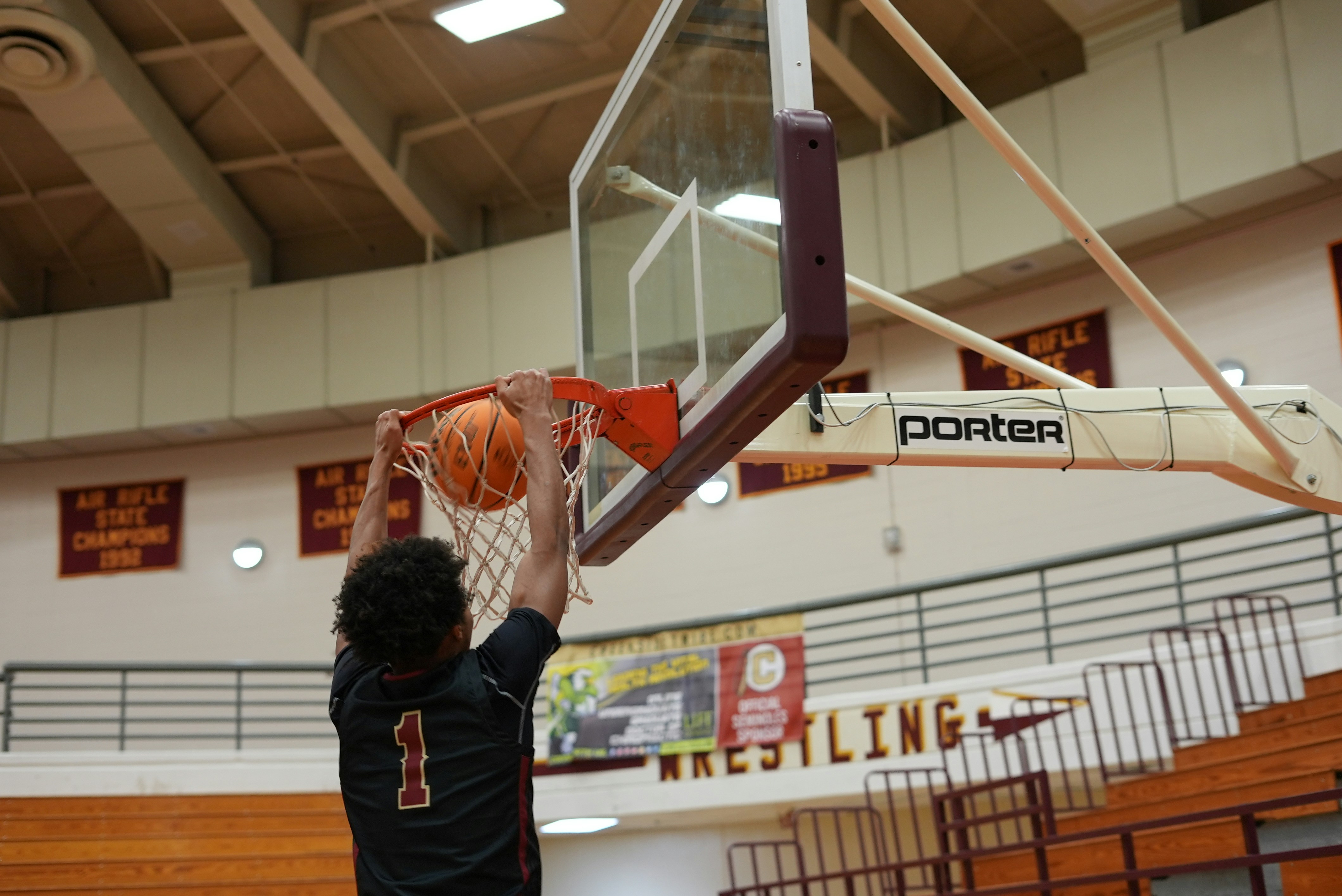Julius Randle on His Performance During Game 4 Loss to Thunder: ‘A Lot of Me Just Spectating’
Overview of Game 4: Thunder vs. Knicks The highly anticipated Game 4 between the New York Knicks and the Oklahoma City Thunder…
Overview of Game 4: Thunder vs. Knicks
The highly anticipated Game 4 between the New York Knicks and the Oklahoma City Thunder brought along a tight battle, encapsulating both teams’ strategies and individual performances. The matchup saw the Thunder emerge victorious, with a final score that highlighted their effective game strategy and execution. Throughout the game, the Thunder maintained a strong offense, characterized by precise ball movement and effective spacing. These elements allowed them to create open shot opportunities, particularly from beyond the arc, significantly contributing to their lead.
From the outset, the Thunder employed a fast-paced approach, pushing the ball up the court and capitalizing on the Knicks’ lapses in transition defense. Their star players executed crucial plays, with sharp passes leading to several fast-break points. The Knicks, on the other hand, struggled to establish a rhythm initially. They faced difficulties integrating their defensive schemes, which allowed the Thunder to maintain pressure and extend their lead as the game progressed.
One of the pivotal moments in the game occurred during the second quarter when the Thunder went on a decisive run, turning a narrow margin into a commanding advantage. This burst of scoring highlighted their offensive dominance, as they consistently outmaneuvered the Knicks’ defense. The Knicks attempted to counteract this momentum through strategic timeouts, aiming to regroup and adjust their tactics. However, despite their efforts, the Thunder’s chemistry proved challenging to contain, leading to a frustrating night for the Knicks.
As the game wore on, the Knicks’ attempts to regain control were stifled by turnovers and missed opportunities. The struggle was evident in key moments, including critical missed free throws and failed offensive sets, which further compounded their issues. This overall performance laid the groundwork for Julius Randle’s reflections on his play during the game, setting a backdrop for the introspection that followed in his comments on what he termed “a lot of me just spectating.”
Julius Randle’s Post-Game Reflections
In the aftermath of the Game 4 loss to the Oklahoma City Thunder, Julius Randle’s reflections revealed a candid insight into his emotional and mental state during the match. Randle articulated a sense of detachment, stating that he felt like he was “spectating” throughout much of the game. This perspective raises important questions about athlete mentality and engagement during critical moments. Randle’s comments suggest a struggle to assert his influence on the game, which can significantly impact a player’s confidence and overall performance moving forward.
Analysing his contributions during the match, it becomes evident that Randle’s self-assessment indicates a level of frustration. He expressed disappointment not just in the game’s outcome but also in his own ability to affect the course of play. This sentiment is crucial, particularly in high-stakes competitive sports where players often grapple with feelings of inadequacy and pressure. Randle’s reflection serves as a reminder that mental barriers can sometimes hinder physical performance; when players perceive themselves as mere spectators, it can diminish their ability to contribute positively to the team’s efforts.
The implications of such self-reflection on Randle’s confidence cannot be overstated. Athletes thrive on a constructive mindset, and feelings of disengagement can lead to a downward spiral if not addressed proactively. The recognition of this detachment is the first step towards improvement. Moving forward, it is essential for Randle to reassess his role and contributions and work on strategies to re-engage fully during games. The feedback from this introspection could ultimately lead to personal growth and better performance as he seeks to navigate future challenges effectively.
Impact of Randle’s Performance on the Team
Julius Randle’s performance during Game 4 against the Oklahoma City Thunder raised significant concerns regarding its impact on the New York Knicks’ overall team dynamics and morale. Observers noted that Randle appeared to be less engaged during crucial moments of the game, which prompted discussions on how his approach affects not only his gameplay but also that of his teammates. As a key player, Randle’s level of involvement can either serve as a catalyst for productivity or pose challenges for team cohesion.
The perception of Randle as “spectating” during essential stretches of the game can lead to diminished confidence among teammates. Players often draw motivation from each other, and a lack of visible engagement from a star player can create an atmosphere of uncertainty. Teammates may feel the pressure to compensate for his reduced effort, which can strain relationships on the court. Coaches have noted that when Randle is actively contributing, it often results in more dynamic ball movement and a collaborative offensive strategy, which in turn enhances the team’s performance.
Moreover, analysts emphasize that Randle’s attitude directly influences the Knicks’ defensive strategies. His ability to pivot between offensive and defensive roles significantly impacts the team’s structure. Should he be perceived as disengaged, it not only hinders his opportunities to score but also affects overall defensive accountability. In essence, Randle’s presence can alter game momentum; thus, a genuine commitment to both ends of the court is imperative for the Knicks. Insights from coaching staff suggest that instilling a culture of accountability within the team is essential for maximizing Randle’s impact, ultimately driving positive outcomes in high-pressure games.
Looking Ahead: Randle’s Role in Future Games
In light of Julius Randle’s performance during Game 4 against the Oklahoma City Thunder, it is essential to analyze how Randle can adapt and improve as the playoffs proceed. Randle, known for his versatility and ability to impact various facets of a game, must focus on enhancing his offensive efficiency. This might involve refining his shot selection and improving ball movement to reduce instances of stagnation, which characterized parts of his performance. By effectively utilizing his teammates, he can create better scoring opportunities not just for himself, but also for others on the court.
To aid in this process, the coaching staff may look to implement specific strategies that emphasize Randle’s strengths. Incorporating more pick-and-roll situations could allow him to leverage his size and agility against defenders. Additionally, ensuring that Randle is positioned to receive the ball in optimal scoring areas will be crucial. An emphasis on spacing the floor will create avenues for driving lanes, where Randle excels. This adjustment could help mitigate the defensive pressure he faced in Game 4, allowing him to play more freely and with intent.
Furthermore, it is plausible that opposing teams will reassess their defensive game plans following Randle’s last performance. Defenses may become more aggressive in their strategy, devising methods to neutralize his impact on the game. Anticipating double-teams and increased defensive attention, Randle must be prepared to make quick decisions, whether that entails passing out of crowded situations or finding creative ways to exploit mismatches. For the New York Knicks, Randle’s evolution in response to these challenges will be pivotal in pursuing playoff success, reinforcing their need for adaptability as a team.

